Start Here
Homepage Bottom Form
We will get back to you as soon as possible.
Please try again later.
Public Adjuster Comparison Checklist
🔥 Public Adjuster Comparison Checklist (So Homeowners Don’t Get Scammed)
Created by House Fire Solutions – Helping Homeowners Recover With Confidence
Hiring a public adjuster can be one of the smartest moves after a house fire — but choosing the wrong one can cost you time, money, and peace of mind.
This checklist helps you compare multiple adjusters side-by-side and spot red flags before signing any contract.
🏠 1. Basic Company Information
| Criteria | What to Look For | Why It Matters |
|---|---|---|
| Company Name | Verify exact legal name and business registration. | Scammers often use similar or fake names. |
| Website & Email | Check for professional email (not Gmail/Yahoo). | Legitimate firms have professional domains. |
| Physical Office Address | Confirm real office, not a P.O. Box. | Shows accountability and permanence. |
| License Number | Verify with your state’s Department of Insurance. | Protects you from unlicensed operators. |
| Years in Business | Preferably 5+ years handling fire claims. | Experience means fewer mistakes. |
| Areas Served | Should include your state or county. | Avoid adjusters working out of state illegally. |
🧾 2. Licensing & Credentials
- Are they a licensed public adjuster in your state?
- Ask to see their license (not just a photo or number).
- Verify their license on your state’s Department of Insurance website.
- Ask if they belong to a professional association (NAPIA, CAPIA, FAPIA, etc.).
- Request proof of insurance and bonding — it protects you.
- Ask if they’ve ever had their license suspended or revoked.
- Check for complaints or disciplinary actions online.
💬 3. Communication & Transparency
| Number | What to Ask | Red Flags |
|---|---|---|
| Responsiveness | How quickly do they return calls/emails? | Avoid anyone slow or dismissive. |
| Communication Style | Are they clear and patient when explaining terms? | Confusion can lead to manipulation. |
| Written Agreement | Do they provide a full written contract? | No contract = no protection. |
| Transparency | Are they upfront about all fees and expectations? | Hidden fees or vague language are warning signs. |
| References | Can they provide at least 3 recent fire claim clients? | No references = potential fraud. |
💵 4. Fees & Payment Structure
- What is their percentage fee of your insurance payout? (Typical range: 5–15%)
- Is the fee based on total payout or additional amount recovered?
- Are there minimum fees even if your payout is small?
- Do they require upfront payments or retainers? (Legitimate ones rarely do.)
- Ask if their fee is negotiable.
- Confirm how fees are handled if you cancel early or switch adjusters.
- Ensure all payment terms are clearly written in the contract.
- Ask: “Are there any hidden costs or third-party fees?”
🧰 5. Experience & Specialization
| Criteria | Questions to Ask | Why It’s Important |
|---|---|---|
| Fire Claim Experience | How many fire claims have you personally handled? | Fire claims are complex — experience matters. |
| Claim Size Range | What’s the largest/smallest fire claim you’ve managed? | Helps match your case size. |
| Team Size | Do you have in-house estimators or outsource? | In-house often means faster service. |
| Technology Used | Do you use Xactimate or claim software? | Ensures accuracy in damage estimates. |
| Local Knowledge | Are you familiar with local contractors and codes? | Speeds up approvals and settlements. |
🧱 6. Contract Details
- Get a written contract before any work starts.
- Review every clause — especially termination, fees, and payment terms.
- Look for a “no recovery, no fee” clause (you only pay if they win you money).
- Make sure the contract defines who negotiates directly with your insurer.
- Avoid contracts that allow them to cash insurance checks directly.
- Ask:
“Can I review this contract with my attorney or House Fire Solutions advisor before signing?”
- Never sign under pressure or emotional distress.
⚖️ 7. Reputation & Reviews
- Check Google, Yelp, BBB, and NAPIA directories.
- Search: “Company Name + complaints” or “scam.”
- Ask for case studies or testimonials from fire claim clients.
- Look for consistent 4⭐ or 5⭐ ratings with detailed comments.
- Avoid reviews that seem copied, generic, or overly vague.
- Be cautious if all reviews are from the same week or month.
- Verify reviews come from local homeowners, not bots or out-of-state profiles.
💡 8. Red Flags to Watch For
🚫 Avoid any adjuster who:
- Shows up unsolicited right after your fire.
- Pressures you to sign immediately or “miss your window.”
- Promises specific payout amounts before reviewing your policy.
- Uses fear tactics, like “you’ll lose everything if you don’t hire me today.”
- Refuses to show proof of license.
- Won’t give references or a written agreement.
- Requests cash payments or checks made out to them personally.
- Asks for your insurance login or banking information.
🧭 9. Comparison Chart Template
| Adjuster | Licensed? | Years of Experience | Fire Claims Handled | Fee % | References Provided | Communication Quality | Red Flags | Overall Rating |
|---|---|---|---|---|---|---|---|---|
| Adjuster 1 | ☐ Yes ☐ No | ____ | ____ | ____% | ☐ Yes ☐ No | Excellent / Fair / Poor | None / Minor / Serious | ⭐⭐⭐⭐ |
| Adjuster 2 | ☐ Yes ☐ No | ____ | ____ | ____% | ☐ Yes ☐ No | Excellent / Fair / Poor | None / Minor / Serious | ⭐⭐⭐⭐ |
| Adjuster 3 | ☐ Yes ☐ No | ____ | ____ | ____% | ☐ Yes ☐ No | Excellent / Fair / Poor | None / Minor / Serious | ⭐⭐⭐⭐ |
📞 10. Questions to Ask Before Signing
- How many fire-related claims have you handled this year?
- Will I be working directly with you or your team?
- What’s your average time from claim start to payout?
- Can you provide copies of your license, insurance, and references today?
- Do you coordinate with my contractor or restoration company?
- How often will you update me on claim progress?
- If I’m unhappy, can I cancel the contract — and how?
- What sets your firm apart from other public adjusters?
💬 11. How to Verify Their Credibility
- Contact your state Department of Insurance to verify their license.
- Check if they’re listed with the National Association of Public Insurance Adjusters (NAPIA).
- Verify if they have complaints or lawsuits filed against them.
- Request their Certificate of Insurance (COI).
- Confirm their business registration through state records.
- Ask for proof of bonding for financial protection.
- Search online for court cases or settlement disputes.
🔍 12. Bonus Tips from House Fire Solutions
✅ Always interview
at least three public adjusters before choosing one.
✅ Take notes during each call — who said what, and when.
✅ If you feel pressured or unsure,
pause and review everything with a trusted advisor.
✅ Ask for
everything in writing — verbal promises mean nothing.
✅ Partner only with
licensed, local, and transparent professionals.
✅ Remember: the
best adjusters educate you, not intimidate you.
💡 House Fire Solutions Final Advice
A good public adjuster helps you recover faster.
A bad one can set you back months.
Take your time, ask the right questions, and always verify before you sign.
Our Team Helps You Navigate Insurance, Restoration, and Rebuilding
It is a long established fact that a reader will be distracted by the readable content of a page when looking at its layout.
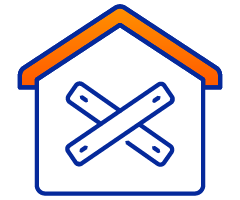
Board-Up
Our Network of Board Up Specialist Will Secure your property fast
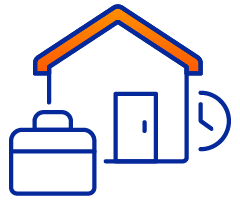
Temp Housing
We'll Help You Find Safe Shelter while you recover

Public Adjusters
Our Network of Fire Damage Adjusters Will Fight Help for a fair insurance payout
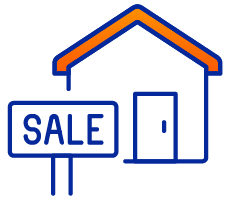
Investors
Our Partner Specializes in Buying Fire Damaged Homes So you Can Sell your home as-is

Content Cleaning
Restore what matters most
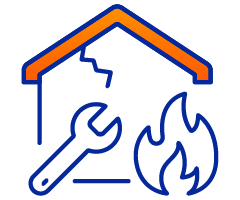
Restoration
Bring your home back to life
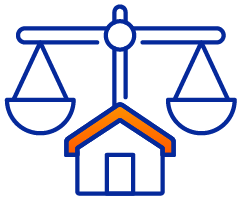
Attorneys
We have a network of Protect your rights and claims

Mental Health
Support for you and your family
Want To See If We Can Help You
If you'd like to speak with us today about purchasing Social Security, Personal Injury, Workers' Compensation or Employment Law Leads.
Homepage Bottom Form
We will get back to you as soon as possible.
Please try again later.